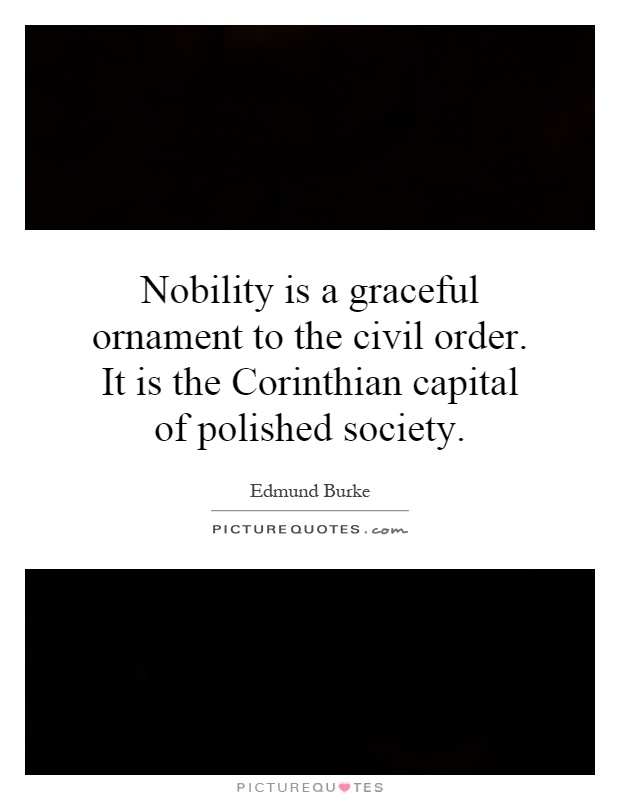Nobility is a graceful ornament to the civil order. It is the Corinthian capital of polished society

Nobility is a graceful ornament to the civil order. It is the Corinthian capital of polished society
Edmund Burke, a prominent 18th-century Irish statesman and philosopher, was a firm believer in the importance of nobility in society. He saw nobility as a crucial element in maintaining order and harmony within a civilization. In his view, nobility was not just a title or a status symbol, but a quality that added grace and elegance to the social fabric.Burke famously stated that "Nobility is a graceful ornament to the civil order. It is the Corinthian capital of polished society." This analogy to the Corinthian capital, a decorative element at the top of a column in classical architecture, is particularly apt. Just as the Corinthian capital adds beauty and sophistication to a building, so too does nobility enhance the overall structure of society.
For Burke, nobility was not just about wealth or lineage, but about character and virtue. He believed that true nobility was marked by a sense of duty, honor, and selflessness. Nobility, in his view, was not something that could be bought or inherited, but something that had to be earned through one's actions and behavior.
In Burke's eyes, nobility was not just a personal attribute, but a social responsibility. Those who held positions of power and influence had a duty to use their privilege for the greater good of society. Nobility, in this sense, was not just a privilege, but a burden that required individuals to act with integrity and compassion.
Burke's ideas on nobility were deeply rooted in his conservative worldview. He believed that a society without a strong sense of nobility would be prone to chaos and disorder. Nobility, in his view, was a stabilizing force that helped to maintain social order and prevent the breakdown of civilization.












 Friendship Quotes
Friendship Quotes Love Quotes
Love Quotes Life Quotes
Life Quotes Funny Quotes
Funny Quotes Motivational Quotes
Motivational Quotes Inspirational Quotes
Inspirational Quotes